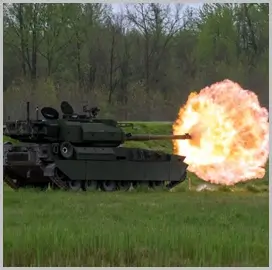 The Department of Defense stands behind the new Strategic Arms Control and National Security Treaty, which strengthens strategic stability, allows the country to revamp its strategic delivery systems and protects its flexibility to deploy important nuclear and non-nuclear capabilities, a senior defense official told Congress on Monday.
The Department of Defense stands behind the new Strategic Arms Control and National Security Treaty, which strengthens strategic stability, allows the country to revamp its strategic delivery systems and protects its flexibility to deploy important nuclear and non-nuclear capabilities, a senior defense official told Congress on Monday.The treaty is created to address specific DoD issues, Edward L. Warner, the representative to the post-START negotiations, told the Senate Foreign Relations Committee.
The new START treaty will not limit the United States’ ability to pursue its current and planned ballistic missile defense program, Warner told the committee. The one exception would be a ban on the conversion of launchers for intercontinental ballistic missiles or sea-launched ballistic missiles for use as missile defense interceptor launchers, or vice versa.
The treaty also will allow the United States to develop defenses to protect the U.S. homeland from limited missile attack and its partners and allies from growing regional ballistic missile threats, Warner said and assured the committee the treaty will not enforce additional costs or burdens on these missile defense efforts.
In negotiating a new treaty to replace the START treaty that expired in April 2009, the United States also wanted to limit and reduce U.S. and Russian strategic offensive arms, Warner said, while at the same time preserving strategic stability that provides predictability and an effective verification system.
Warner noted the DoD plans to invest more than $100 billion over the next decade to sustain and modernize its strategic nuclear delivery systems. The Department of Energy will also contribute with more than $80 billion to sustain and modernize the nuclear weapons stockpile and the nuclear weapons complex that supports it, he said.
The administration also was intent on protecting the United States’ ability to develop and deploy conventional prompt global strike systems, Warner told the panel. DoD leadership is confident provisions in the treaty accommodate those requirements for the treaty’s 10-year lifetime, he said.



